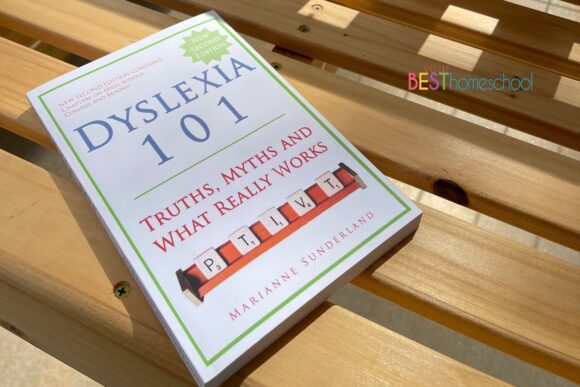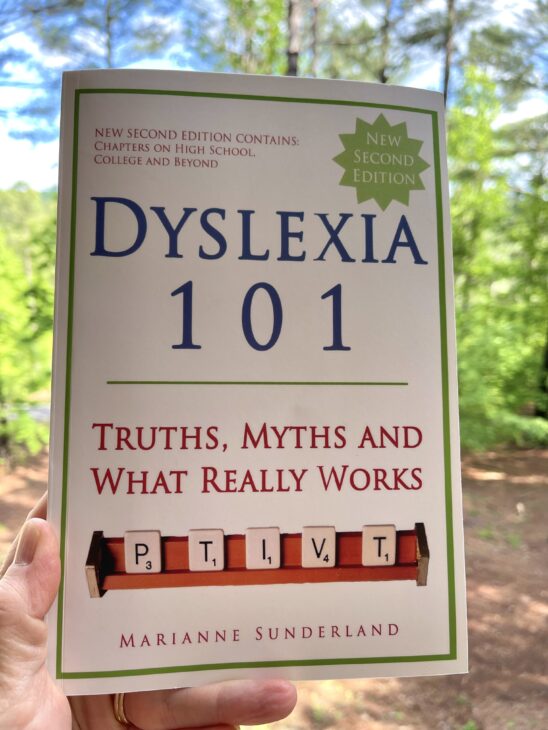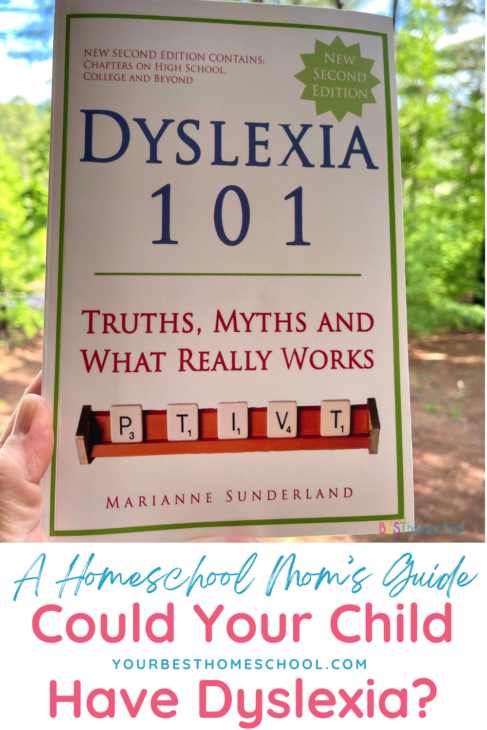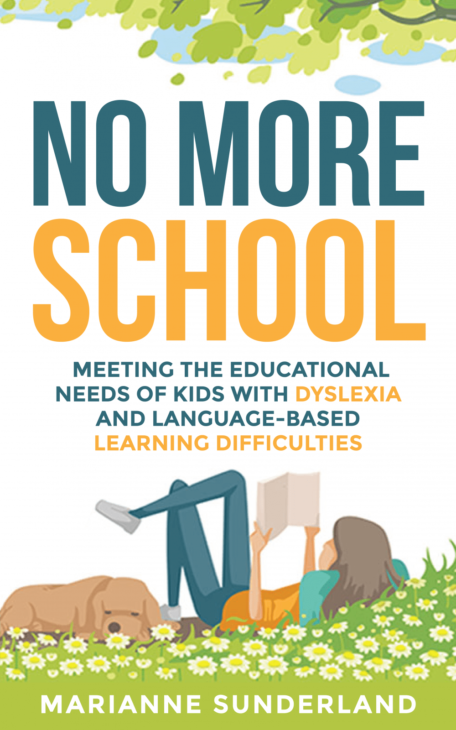Could your child be dyslexic? There is help and much hope! Some of the most brilliant entrepreneurs and artists have dyslexia!
Today, it is with great pleasure that I welcome Marianne Sunderland of Homeschooling with Dyslexia. I have been so very much looking forward to her visit! I know that several of my readers have asked about dyslexia resources. Look no further! Marianne is a homeschooling mother of eight children. You may have heard of her ‘Do Hard Things’ sailing children, Zac and Abby? Through teaching and raising her children she has become a dyslexia expert. She shares part of her experience below. But she speaks to you, dear readers, and answers the question…

Could Your Child be Dyslexic? by Marianne Sunderland
As parents of school-aged children, and especially as homeschooling parents, overseeing the reading instruction of our children is a exciting and life-changing stuff! It has been said that to teach your child to read is to open the doors of the world for them. It is one of the major skills that ensures that they will be able to learn and teach themselves anything they want to know throughout their lives.
I grew up loving to read and never knew that there were actually people who struggled with learning to read or write or spell. In fact, when I married my husband, I didn’t think much of the fact that he was always spelling my name wrong. He was handsome, hard working, creative and funny, who cared if he switched a few letters around, right?
Statistics say that:
- 5% of kids will learn to read on their own
- 20-30% will learn to read relatively easily once exposed to formal instruction; most methods will be effective
- 30-50% will find learning to read to be difficult without direct systematic, explicit instruction
- 30-50% will find learning to read to be the most difficult challenge they will ever face
Fast forward 22 years, my husband and 6 of my 7 reading aged kiddos have dyslexia! (Yes, dyslexia is genetic!) There has been quite a learning curve over here, much helped by my husband’s insightful, experienced observations and ideas.
Could your child be dyslexic?

Here are some of the common signs of dyslexia:
In Preschool:
- delayed speech
- mixing up sounds and syllables in long words
- stuttering
- left-right confusion
- trouble rhyming
- trouble memorizing their address, phone number or the alphabet
- trouble learning to tie shoes
In Elementary School:
- does not enjoy reading but likes being read to
- slow, inaccurate reading
- uses context clues rather than sounding words out
- skips or misreads little words (at, to, of)
- poor spelling – very phonetic
- trouble telling time on a clock with hands
- difficulty expressing self
- inattentiveness, distractability
- slow and messy handwriting – also called dysgraphia
- letter and number reversals after first grade
- trouble memorizing math facts
- hesitant speech; difficulty finding the right words to express self
- extremely messy bedroom, backpack or desk
- dreads going to school
Adolescence and Adulthood:
All of the above signs plus:
- difficulty processing auditory information
- losing possessions; poor organizational skills
- slow reading; low comprehension
- difficulty remembering the names of people and places
- difficulty organizing ideas to write a paper
- difficulty reading music
- unable to master a foreign language
- inability to recall numbers in proper sequence
- lowered self-esteem due to past frustrations and failures
- may drop out of high school
If your child has 3 or more of these signs or a close family member has dyslexia, it may be a good idea to have your child tested for dyslexia after they turn five.
A few facts about dyslexia:
- Dyslexia is not outgrown. A dyslexic child will become a dyslexic adult.
- Dyslexia is genetic. It is not caused by a traumatic birth, poor diet or poor parenting.
- Dyslexia is unrelated to intelligence. Most dyslexics have average to above-average intelligence.
- Dyslexia is totally treatable. It is not easy and takes perseverance and the right methods. The earlier you get started the faster and easier the treatment.

What is Next for Dyslexia Your Homeschool?
I know what it is like to have a child who just doesn’t get it. I know the frustration and helplessness of not knowing where to turn for help. That is why I wrote Dyslexia 101. You can order my book and find out more information on the myths and facts about dyslexia, methods that work and how to get your child the help they need to succeed.
–> Available in book form for instant download by PDF. Also available on Amazon!
Tricia here – Marianne now has an updated edition of Dyslexia 101. The New second edition includes chapters on high school, college and beyond!

Don’t miss her newest book, No More School: Meeting the Educational Needs of Kids with Dyslexia and Language-Based Learning Difficulties
More Resources for Struggling Learners
Homeschool Resources for Auditory Learners
Jen’s review of Dyslexia 101 at The Curriculum Choice
Why Art is So Powerful in Helping Struggling Learners

Marianne Sunderland is a homeschooling mother of eight lively children ages 2 to 21, including adventurous and homeschooled sailors, Zac and Abby Sunderland, known for their world-record setting around the world sailing campaigns. Marianne is passionate about encouraging families to discover and nurture their children’s God-given gifts and talents, in and outside of the classroom. She also encourages women to joyfully love and serve their families. Marianne’s blog provides articles on faith, family, dyslexia and homeschooling that will bless and encourage you: Homeschooling with Dyslexia.
-first shared by Marianne in March of 2013. Updated by Tricia to include new edition and new book!
Leave a Reply